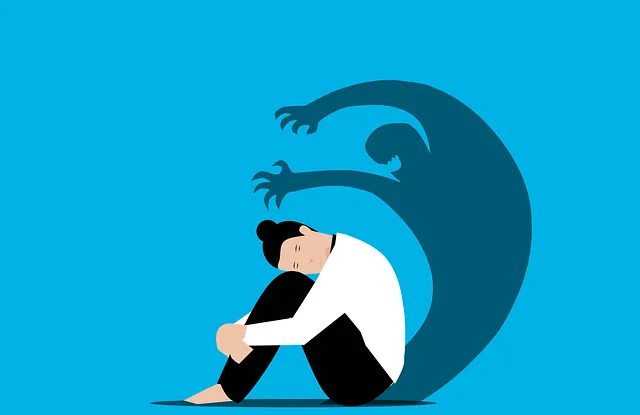Mental wellness apps fill a critical gap in traditional healthcare, offering accessible tools for stress management and skill development from home. Inspired by facilities like the Kaiser Permanente mental health center in Aurora, these apps incorporate mindfulness exercises, mood tracking, and coaching programs. They cater to diverse needs, revolutionize at-home self-care, and serve as models for app development integrating therapy, technology, and community support. Effective interface design and crisis intervention tools enhance user engagement, while strategic marketing and partnerships with local healthcare providers ensure widespread accessibility in communities like Aurora.
Mental wellness apps are gaining prominence as essential tools for managing and improving psychological well-being. With increasing awareness about mental health, these digital solutions offer accessible and personalized support. This article explores the growing demand for such applications, using the Kaiser Permanente Mental Health Facility in Aurora as a model for integrated care. We’ll guide you through key features, user interface design, and marketing strategies to create effective mental wellness apps, inspired by best practices from leading facilities like Kaiser Permanente Aurora.
- Understanding the Need for Mental Wellness Apps
- Kaiser Permanente Mental Health Facility Aurora: A Model for Integrated Care
- Key Features to Include in a Comprehensive Mental Health App
- Designing User Interfaces for Enhanced User Experience
- Marketing and Distribution Strategies for Mental Wellness Apps
Understanding the Need for Mental Wellness Apps

In today’s fast-paced world, mental wellness is a critical aspect of overall health that often takes a back seat to physical well-being. This is where mental wellness apps step in, filling a gap left by traditional healthcare systems like the Kaiser Permanente mental health facility in Aurora. These applications are designed to support individuals in managing and improving their mental health, offering accessible tools for stress management and coping skills development anytime, anywhere.
The need for such digital solutions has become increasingly apparent, especially with the challenges posed by modern life. Mental wellness app development focuses on creating personalized experiences that cater to diverse user needs. By integrating features like mindfulness exercises, mood tracking, and mental wellness coaching programs, these apps empower users to take charge of their mental health proactively. This shift towards at-home, self-care practices is revolutionizing the way we approach stress management and coping skills development.
Kaiser Permanente Mental Health Facility Aurora: A Model for Integrated Care

The Kaiser Permanente mental health facility in Aurora stands as a shining example of integrated care, seamlessly blending medical expertise with holistic emotional healing processes. This innovative approach prioritizes patient-centric care by addressing not just symptoms but also underlying causes, fostering coping skills development for long-term mental well-being. The facility’s robust infrastructure enables comprehensive services, including therapy sessions, support groups, and educational workshops, all geared towards empowering individuals to navigate life’s challenges effectively.
By adopting a multifaceted strategy, Kaiser Permanente Aurora ensures a risk assessment for mental health professionals is an ongoing process, facilitating early intervention and tailored treatment plans. This model of care not only improves individual outcomes but also sets a benchmark for future mental wellness app development. It underscores the importance of integrating various therapeutic methods, technology, and community support to create a supportive ecosystem where emotional healing can thrive.
Key Features to Include in a Comprehensive Mental Health App

A comprehensive mental health app should offer a suite of features designed to support users’ emotional well-being, much like the holistic approach provided by facilities such as the Kaiser Permanente mental health facility in Aurora. Incorporating elements from Mental Health Policy Analysis and Advocacy and Burnout Prevention Strategies for Healthcare Providers, these apps can aid professionals and individuals alike in managing stress and maintaining a healthy mind. Key features include mood tracking, allowing users to record and reflect on their daily emotions, which helps in identifying patterns and triggers for anxiety or depression.
Additionally, incorporating mindfulness exercises, meditation guides, and relaxation techniques can empower users to practice Emotional Regulation effectively. Some apps provide virtual therapy sessions, offering a convenient and accessible alternative to traditional face-to-face therapy. Others include community forums where users can share experiences and support one another, fostering a sense of belonging and reducing feelings of isolation. These features collectively contribute to the app’s ability to enhance mental wellness and resilience.
Designing User Interfaces for Enhanced User Experience

Designing user interfaces for mental wellness apps is a critical aspect that often determines their success and adoption rates. The app’s interface should be intuitive, accessible, and tailored to the unique needs of its users, especially those seeking support from facilities like Kaiser Permanente’s mental health facility in Aurora. Incorporating user-centric design principles ensures that individuals can navigate the app effortlessly, fostering a sense of comfort and control over their emotional well-being.
Effective interface design involves creating a seamless blend of functionality and aesthetics. By prioritizing simplicity, clarity, and consistency, developers can make self-care practices more engaging and accessible. Crisis intervention guidance and tools for cultivating emotional intelligence should be seamlessly integrated, allowing users to promptly access resources that align with their current needs. This thoughtful approach not only enhances the overall user experience but also encourages regular app engagement, potentially leading to improved mental health outcomes.
Marketing and Distribution Strategies for Mental Wellness Apps

Marketing and Distribution strategies for mental wellness apps are crucial to their success. Apps targeting users in urban areas like Aurora, where Kaiser Permanente’s mental health facility is based, should leverage local partnerships with healthcare providers, community centers, and schools to raise awareness about their services. Incorporating Mental Health Awareness campaigns and integrating risk assessment tools can attract users seeking support.
Additionally, focusing on accessibility and user experience can set your app apart. Ensure it caters to diverse cultural needs through Healthcare Provider Cultural Competency Training-inspired features, appealing to a broader audience. Utilizing digital marketing channels, such as social media platforms popular among younger demographics, and targeting specific keywords like “mental wellness Aurora” or “risk assessment mental health professionals,” will enhance discoverability. Effective distribution strategies can significantly impact the app’s reach and potential to positively contribute to the local mental health landscape.
Mental wellness apps have emerged as powerful tools in modern healthcare, offering accessible and personalized support. As evidenced by Kaiser Permanente’s successful Mental Health Facility Aurora model, integrating digital solutions with traditional care can significantly improve patient outcomes. By incorporating key features like therapy sessions, mindfulness exercises, and community support, these apps cater to a comprehensive mental health experience. Effective user interface design enhances usability, ensuring individuals find the help they need easily. With strategic marketing and distribution, mental wellness apps can reach a wide audience, making professional care more accessible than ever. Thus, with continued innovation, these applications have the potential to revolutionize mental healthcare, particularly when guided by models like Kaiser Permanente Aurora.






